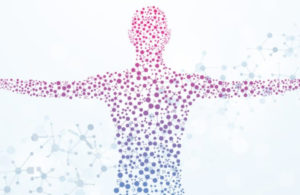 Researchers from Belgium and the Netherlands have studied health data for thousands of citizen volunteers and presented the most comprehensive work on the human microbiome to date. Both the studies have been published in the journal Nature. The study teams have reported that food diversity is good for health. The research teams have also indicated food items that help in improving gut microbiome.
Researchers from Belgium and the Netherlands have studied health data for thousands of citizen volunteers and presented the most comprehensive work on the human microbiome to date. Both the studies have been published in the journal Nature. The study teams have reported that food diversity is good for health. The research teams have also indicated food items that help in improving gut microbiome.
The researchers have mapped the species of bacteria that are present inside the volunteers' guts and linked them with some of the bacteria to associated lifestyle factors. The first research led by Jeroen Raes of the Flanders Institute for Biotechnology focused on Flemish Gut Flora Project, in which stool samples of 3,500 volunteers were collected.
The researchers have analyzed 1,100 samples until now and cross-checked the findings with a Dutch health monitoring program called LifeLines. As per Raes, microbiomes are different in countries outside the Western world.
The researchers discouvered sixty dietary aspects which affect diversity. There is a great correlation between diversity and health, and for them, greater diversity is better. It has also been found that even small dietary changes were having a big effect on health and gut microbes.
To cite an example, certain dairy products like yogurt and buttermilk increased the diversity of species in the gut, and full-fat tended to decrease diversity. Red wine and coffee were also found to increase the biodiversity of the gut.
Alexandra Zhernakova from the University Medical Center Groningen also found that 19 medications were having a negative impact on gut diversity. Raes said, “For now, these are just associations. We do not truly understand the basis or consequence of them. It's my impression that the most solid science provides more inquiries than explanations, and these 69 aspects we attained are just a new list of issues to solve”.
These type of researches help when studying disease and trying to produce diagnostics and drugs from the microbiome.


